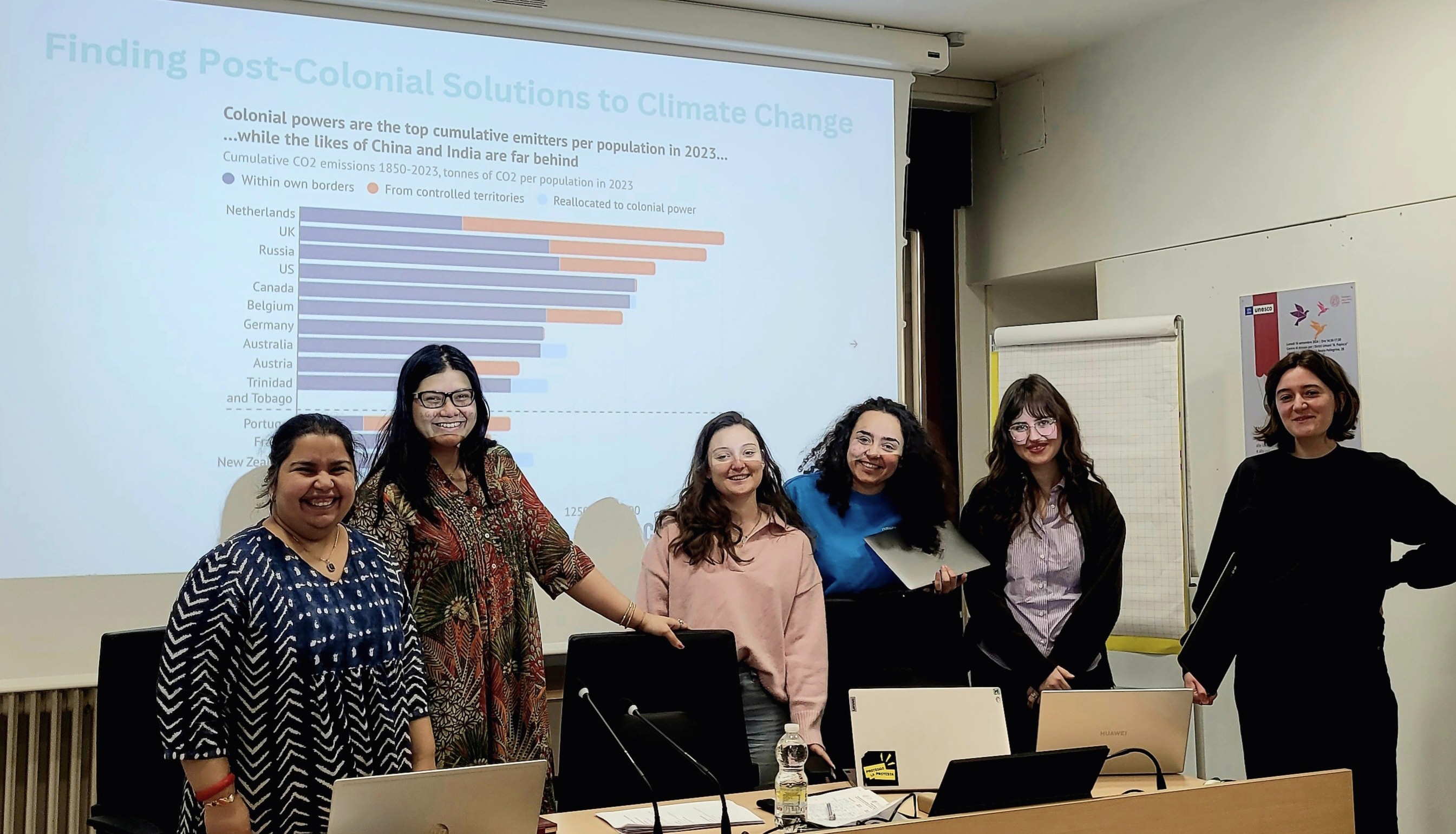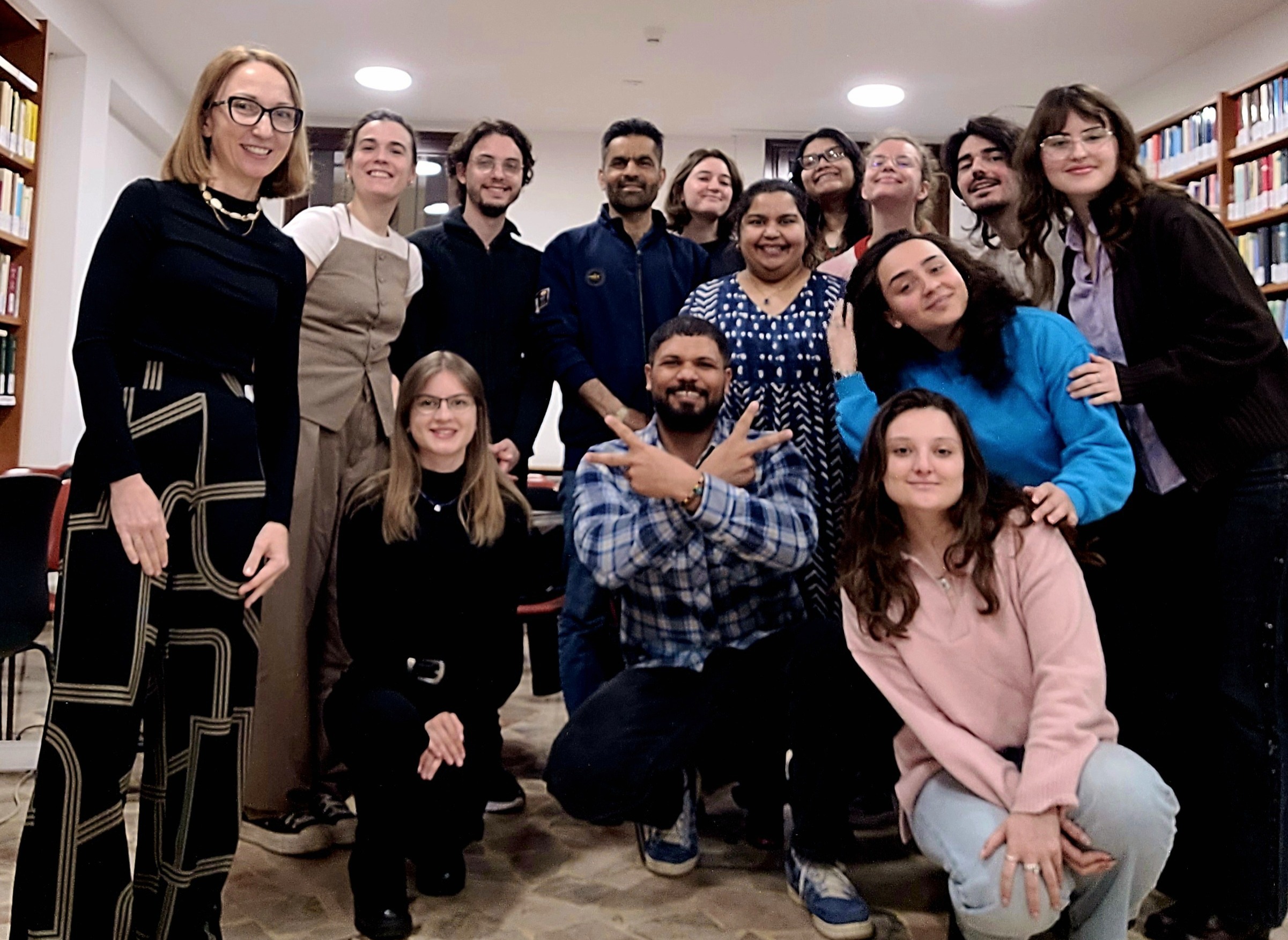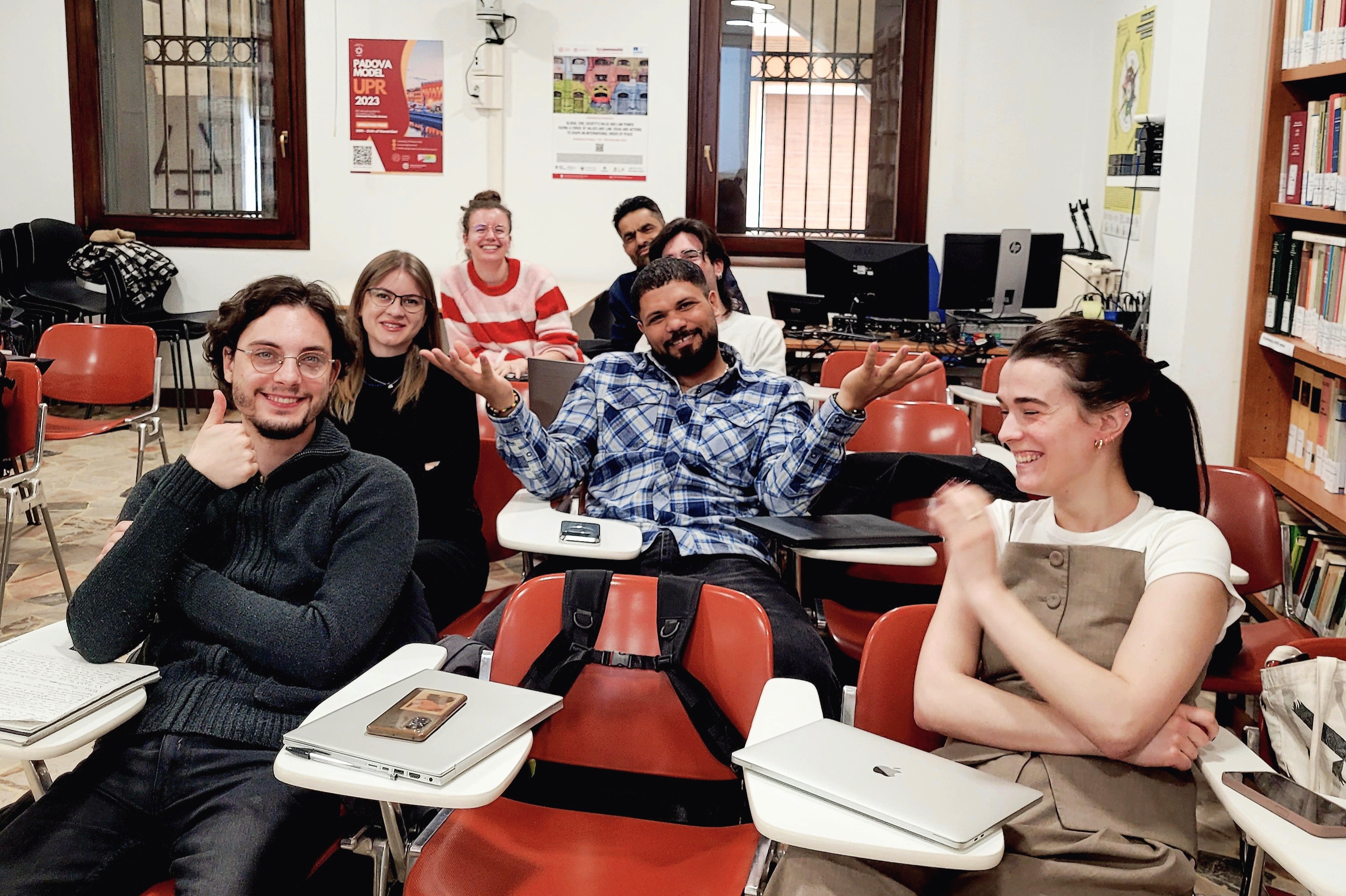Postcolonial Perspectives on Human Rights: Examples of Challenges and Resilience from East Africa

Under the initiative of Prof. Anna Cichecka from the University of Wroclaw, the Human Rights Centre of the University of Padua hosted a week-long seminar series titled “Postcolonial Perspectives on Human Rights: Focus on East Africa.” The program brought together Master’s and PhD students for a critical examination of the intersection between colonial legacies and contemporary human rights challenges in the region.
The opening session invited participants to reassess the global human rights framework by tracing its colonial roots and examining how power structures persist in postcolonial societies. After introducing key concepts such as postcolonialism and neo-colonialism, Prof. Cichecka presented alternative models—including Pan-Africanism and the Ubuntu philosophy—as tools to challenge the dominance of Western human rights narratives.
Students were then tasked with identifying gaps, inconsistencies, and silences in the Universal Declaration of Human Rights, revising its articles through a postcolonial lens. The exercise sparked lively debate on the need for more culturally rooted and inclusive interpretations of justice.
The second seminar session shifted attention to the status of women in East Africa. Prof. Cichecka outlined how historical, cultural, legal, and economic factors have shaped the lived experiences of women in the region. Despite progress in areas such as education and political representation, serious challenges remain—including gender-based violence, female genital mutilation, child marriage, economic vulnerability and legal discrimination.
The session concluded with an analysis of strategies to promote gender equality. These included legal reforms (fast-track solutions), such as gender quotas and reserved political seats, as well as slower, transformative approaches (slow-track solution) like public education and awareness campaigns. The role of NGOs as agents of change was also highlighted as a key element of grassroots resilience.
The third session placed climate justice at the center of discussion. With East Africa particularly vulnerable to the impacts of climate change, students examined the concept of historical accountability—acknowledging the disproportionate role of industrialized nations in driving environmental degradation.
Prof. Cichecka emphasized the importance of intergenerational responsibility and argued for a human rights-based approach to climate adaptation, including the establishment of fully-fledged climate reparations. Participants worked in groups to review UN reports on climate impacts in East Africa and developed policy proposals for equitable and sustainable solutions.
The final day of the seminar series was devoted to practical application. Students were challenged to develop support strategies for two hypothetical local organizations: one promoting women’s rights and gender equality and the other advocating for sustainable solutions to climate-related challenges. The exercise highlighted the complexities of translating theory into action, particularly in settings marked by limited resources and entrenched inequalities.
Throughout the week, the seminar series encouraged students to challenge dominant paradigms and engage with today’s most pressing issues from a postcolonial perspective. By centering East African contexts and voices, the program provided a platform for critical reflection and practical engagement with topics of primary importance for a more just and inclusive interpretation of human rights. The Human Rights Centre extends its gratitude to Prof. Anna Cichecka for leading a transformative and eye-opening experience.



